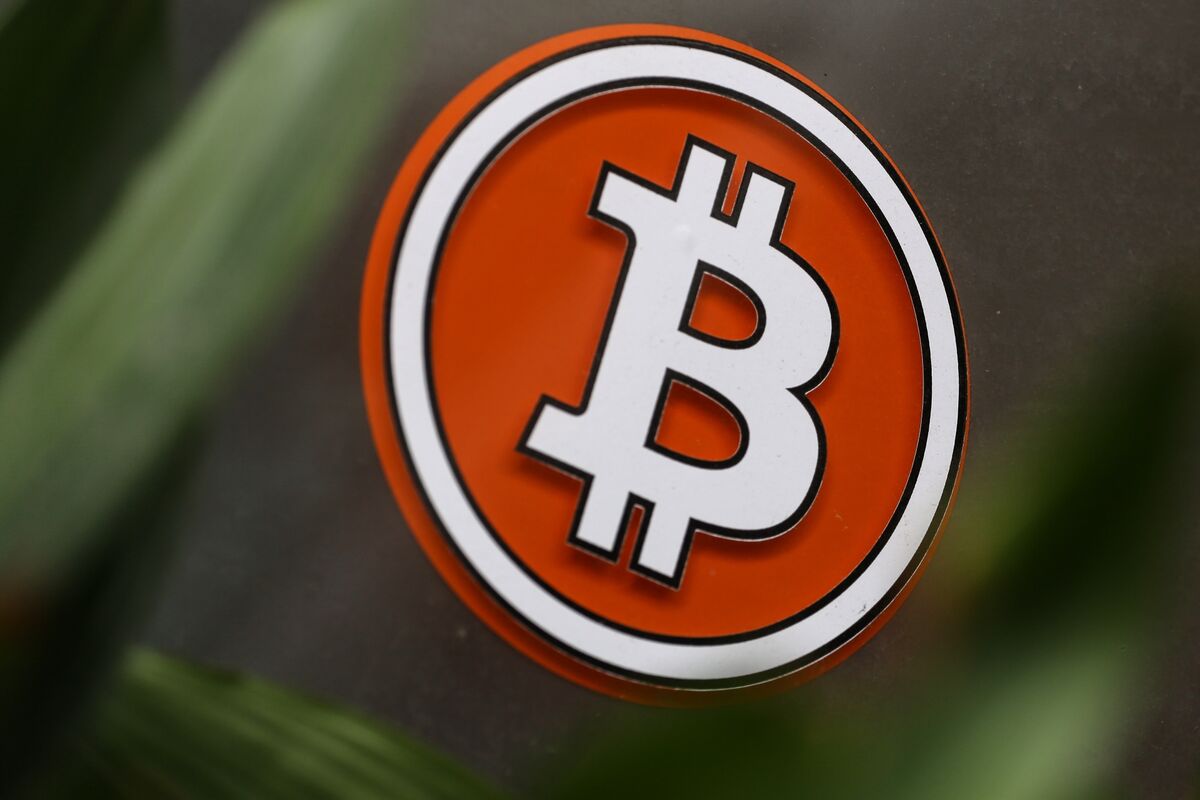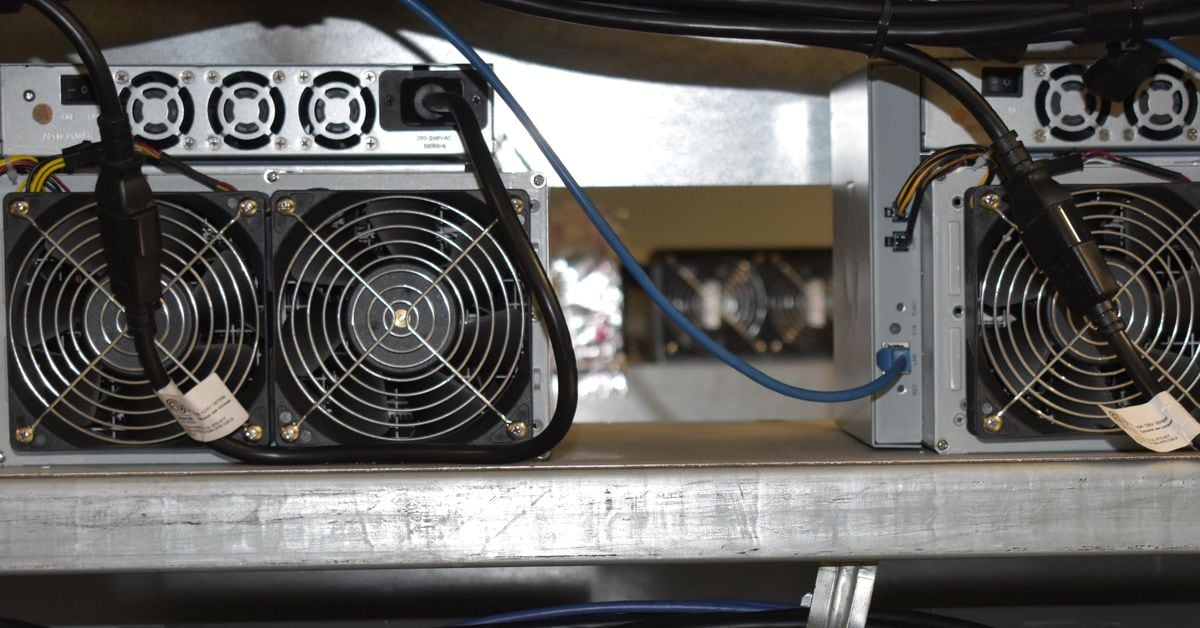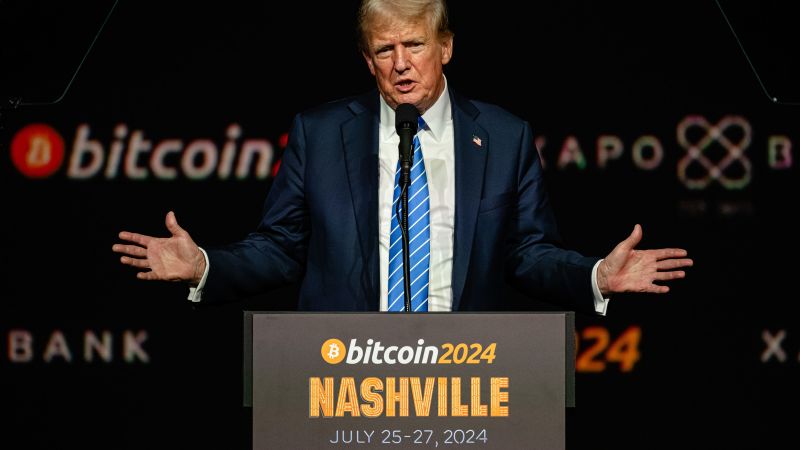Bitcoin
Inside the $1.6 Billion Bitcoin Heist That Shook the Crypto World

How did one of the first and most devastating Bitcoin robberies unfold, resulting in the loss of $1.6 billion and shaking the crypto community? Read.
In the early days of Bitcoin (Bitcoin), the crypto world was like the Wild West – unknown, exciting, and full of dangers lurking around every corner. It was a time when few people understood what Bitcoin was, much less its potential.
The year was 2011 and Bitcoin was still in its infancy. Its price has hovered around US$10, a far cry from its meteoric rise in recent years.
At that time, the idea of a digital currency free from the control of any government or financial institution was new, attracting those eager to explore this new frontier. Among these early users was a Bitcoin user known by the online pseudonym ‘allinvain’.
However, one fateful day in June 2011, allinvain’s world turned upside down. As he sat down to check his Bitcoin wallet, he was greeted with a shocking discovery: his stash of 25,000 Bitcoins was gone. Fast forward to today, and those same bitcoins would be worth more than $1.62 billion.
This incident was one of the first major Bitcoin thefts and sent shockwaves through the crypto community. For Allinvain, it was a devastating blow, both financially and emotionally. The once hopeful and promising world of Bitcoin has suddenly turned into a nightmare.
So who really was allinvain and how did he become the victim of one of the biggest Bitcoin robberies? Let’s find out.
Who was all in vain?
The pseudonymous figure known as ‘allinvain’ was an early adopter of Bitcoin, attracted by the digital currency’s promise of a decentralized financial system. Although his true identity remains a mystery, his journey in the Bitcoin community began like many others – with curiosity and a sense of adventure.
Allinvain discovered Bitcoin in its early stages around 2010, when the concept of digital currency was still obscure and widely misunderstood. Intrigued by its potential, he began mining Bitcoin, a process where powerful computers solve complex mathematical problems to validate transactions and generate new bitcoins.
During these early days, mining was relatively easy and allinvain was able to accumulate a large number of bitcoins through this process. He was generating a 50 BTC block every hour, accumulating 1,200 BTC per day.
2/ But ALLINVAIN was also a dedicated company #Bitcoin miner.
Armed with just his laptop, he generated a block of 50 BTC every hour.
That’s 1,200 BTC per day 🤯 pic.twitter.com/WW8juRNNRp
— The Bitcoin Historian (@pete_rizzo_) June 16, 2024
Mining wasn’t all Allinvain did. In 2010, he started one of the first Bitcoin exchanges, Bitcoin Express, which allowed users to buy Bitcoin with PayPal. The exchange sold 1,000 BTC for $5, pricing each bitcoin at a surprisingly low $0.005.
Furthermore, he was also an active and engaged member of the Bitcoin community. He frequently participated in online forums like Bitcointalk, where early Bitcoin enthusiasts gathered to discuss the currency’s potential, share mining tips, and debate the future of decentralized finance (DeFi).
His contributions went beyond online forums – he participated in the first Bitcoin transactions, helping to create a market for the digital currency and establishing its credibility and usefulness as a medium of exchange.
In 2011, the mining landscape changed drastically. Mining difficulty skyrocketed and the hash rate rose to 4 TH/s, a whopping increase from a mere 0.001% in 2010, which led to a crazy rise in Bitcoin prices.
However, what happened next was truly shocking and revealed the dark side of the decentralized system that allinvain and others hoped to propagate.
What really happened and what did Allinvain lose?
Allinvain quickly became a Bitcoin whale with over 25,000 BTC, celebrating when the price soared in early 2011 to a high of $30 during the first Bitcoin bubble. At that time, its assets were worth approximately $500,000 – a substantial amount in the early days of digital currency.
However, disaster struck on June 13, 2011. Allinvain logged into his Bitcoin wallet and discovered a transaction of 25,000 BTC in his wallet. In an instant, all of his Bitcoins were gone.
The incident was a devastating blow, leaving everyone understandably distraught. He shared his anguish on the Bitcoin community forums, expressing grief and frustration over the loss.
He confessed to feeling a mix of anger and self-blame, wondering if there was any way to invalidate the stolen coins. Unfortunately, the decentralized nature of Bitcoin meant that once a transaction was made, it could not be reversed.
Despite backing up his wallet on several online storage services such as Dropbox, Wuala and SpiderOak, he later deleted these backups after learning that Dropbox employees could access files remotely.
However, the real problem is that your computer has been hacked and the unencrypted wallet file has been stolen. He suspected that a Trojan virus, bitcoin-miner.exe, which he had previously used as Bitcoin mining software, was the method of attack.
This file, identified by Symantec Antivirus as malicious only after the theft, likely allowed the hacker to access his computer and steal the wallet file containing the 25,000 BTC.
Speculations and consequences
Following the completely pointless Bitcoin theft, speculation and intense scrutiny permeated the Bitcoin community and the media, including Forbes.
Forbes pointed raised a critical issue with Bitcoin’s anonymity, highlighting that the nature of Bitcoin transactions made it impossible to track stolen coins.
Unlike traditional financial systems, where transactions can be tracked, Bitcoin’s design ensures the anonymity of transactions, complicating efforts to identify recipients or track stolen funds.
Furthermore, Forbes highlighted the challenge of verifying the theft itself, citing the difficulty in providing concrete proof of the existence of the stolen Bitcoins.
The Bitcoin community, however, was rife with conspiracy theories. Some questioned the credibility of allinvain’s claims, citing skepticism about the username ‘allinvain’ in light of the circumstances.
Skeptics also noted that transferring 25,000 bitcoins seemed unusually expensive and risky for unprotected storage. Discussions on the forums were filled with debates about security flaws, personal responsibility, and the potential need for central bank-like structures in the crypto world.
The road ahead
A key takeaway from the allinvain experience is the importance of personal safety practices. You must ensure that your wallet files are encrypted and stored in secure locations, preferably offline.
Multi-factor authentication and the use of hardware wallets can add extra layers of protection against unauthorized access.
The incident also raises questions about the risks inherent in a decentralized and anonymous currency. While Bitcoin’s design offers freedom from traditional financial institutions, it also eliminates the safety nets these institutions provide.
As the crypto ecosystem evolves, will there be a need for new structures or systems that offer some level of recourse in cases of theft or loss?
As we move forward, it is crucial to learn from past incidents and continually improve security practices. For those holding large amounts of crypto, personal vigilance is key. Always remember, in the world of encryption, your security is only as strong as your weakest link.
Bitcoin
Big Tech Outperforms Bitcoin (BTC) as Trump Deal Weakens Token

Bitcoin has lost out on an asset rally fueled by positive comments from the Federal Reserve, while a tight US election race casts doubt on whether Donald Trump will get the chance to implement his pro-crypto agenda.
The digital asset fell 2.4% on Wednesday, following a Fed-fueled surge in an index of megacap tech stocks Magnificent Seven by one of the largest margins in 2024. The token retreated further on Thursday, changing hands at $63,750 as of 6:10 a.m. in London.
Bitcoin
‘This is huge’ — Billionaire Mark Cuban issues ‘incredible’ Bitcoin and crypto prediction amid price slump

Bitcoin
Bitcoin
came back with a vengeance this year when former President Donald Trump Cryptocurrency boosts US presidential election in November with ‘revolutionary’ plan.
The price of bitcoin has surged to more than its all-time high in recent months, surpassing $70,000 per bitcoin and triggering a wave of mega-optimistic predictions about the price of bitcointhough it fell again this week, falling below $65,000 after the Federal Reserve kept interest rates steady.
Now, as Elon Musk suddenly breaks his silence on bitcoin and cryptocurrenciesBillionaire investor Mark Cuban called a California plan to digitize 42 million car titles using blockchain an “incredible step forward” and “huge” for cryptocurrencies.
Sign up for free CryptoCodex now—A daily five-minute newsletter for traders, investors, and crypto curious people that will keep you up to date and ahead of the bitcoin and crypto bull market
Mark Cuban, famous Shark Tank investor and billionaire owner of the NBA team Dallas Mavericks, has… [+] called a cryptocurrency update “amazing” amid bitcoin’s price slump.
Getty Images
The California Department of Motor Vehicles (DMV) has digitized 42 million car titles using blockchain, it was reported by Reuters, through technology company Oxhead Alpha on the Avalanche blockchain and designed to detect fraud and facilitate the securities transfer process.
“This is an incredible development for crypto,” Cuban, best known as an investor on TV’s Shark Tank and owner of the Dallas Mavericks NBA team, posted on X, joking that U.S. Securities and Exchange Commission (SEC) Chairman Gary Gensler could sue the state as part of his hostility toward cryptocurrencies and blockchain technology.
“The reason this is huge for crypto is because people who hold the tokens will have an app with an Avalanche wallet,” Cuban said. “Tens of millions of Californians having and using a crypto wallet in the next five years, or however long it takes, normalizes the use of wallets and crypto.”
John Wu, president of Avalanche developer Ava Labs, told Reuters that California’s DMV is “creating a wallet that you can download on your phone.”
Sign up for CryptoCodex now—A free daily newsletter for the crypto-curious
Bitcoin’s price has rallied this year, triggering a wave of bullish bitcoin price predictions from… [+] people like billionaire Mark Cuban.
Forbes Digital Assets
Last month, Cuban predicted that if the US dollar falls as the global reserve currency, bitcoin could become “a global ‘safe haven’” and a “global currency.” potentially sending the price of bitcoin to a much higher level.
According to Cuban, bitcoin could become what its most ardent supporters “envision” — a means “of protecting our economies… This is already happening in countries facing hyperinflation.”
The price of bitcoin has skyrocketed over the past year, largely due to the world’s largest asset manager, BlackRock, leading a bitcoin attack on Wall Street.
Bitcoin
Bitcoin (BTC) miner Riot Platforms (RIOT)’s second-quarter loss widens to $84.4 million as costs rise

Please note that our Privacy Policy, terms of use, cookiesIt is do not sell my personal information Has been updated.
CoinDesk is a awarded media outlet that covers the cryptocurrency industry. Its journalists follow a strict set of editorial policies. In November 2023, CoinDesk has been acquired by the Bullish group, owner of Optimistica regulated digital asset exchange. The Bullish Group is majority owned by Block.one; both companies have interests CoinDesk has a portfolio of blockchain and digital asset businesses and significant holdings of digital assets, including bitcoin. CoinDesk operates as an independent subsidiary with an editorial board to protect journalistic independence. CoinDesk employees, including journalists, may receive options in the Bullish group as part of their compensation.
Bitcoin
Why Trump Wants the US Government to Have a “National Stockpile” of Bitcoin

At a national bitcoin conference in Nashville, Donald Trump finally laid out some of his crypto policy proposals, including a long-awaited part of his plan — building a strategic bitcoin reserve. CNN’s Jon Sarlin explains what it is and why the crypto industry wants it.
-

 News1 year ago
News1 year agoBitcoin soars above $63,000 as money flows into new US investment products
-

 DeFi1 year ago
DeFi1 year agoEthena downplays danger of letting traders use USDe to back risky bets – DL News
-

 News1 year ago
News1 year agoFRA Strengthens Cryptocurrency Practice with New Director Thomas Hyun
-

 DeFi1 year ago
DeFi1 year agoZodialtd.com to revolutionize derivatives trading with WEB3 technology
-

 Markets1 year ago
Markets1 year agoBitcoin Fails to Recover from Dovish FOMC Meeting: Why?
-

 DeFi1 year ago
DeFi1 year ago👀 Lido prepares its response to the recovery boom
-

 Markets1 year ago
Markets1 year agoWhale Investments in Bitcoin Reached $100 Billion in 2024, Fueling Crazy Investor Optimism ⋆ ZyCrypto
-

 Markets1 year ago
Markets1 year agoWhy Bitcoin’s price of $100,000 could be closer than ever ⋆ ZyCrypto
-

 DeFi1 year ago
DeFi1 year agoPancakeSwap integrates Zyfi for transparent, gas-free DeFi
-

 Markets1 year ago
Markets1 year agoWhales are targeting these altcoins to make major gains during the bull market 🐋💸
-

 DeFi1 year ago
DeFi1 year ago🏴☠️ Pump.Fun operated by Insider Exploit
-

 News1 year ago
News1 year agoHow to make $1 million with crypto in just 1 year 💸📈





